|
Recently I answered the phone in response to a call from a friend. Her voice was filled with great urgency as she said, “I have to do something! What can I do?” She had just completed the reading of one of the books we had been discussing at church, “Stand Your Ground: Black Bodies and the Justice of God” by Kelly Brown Douglas. The book had awakened in her a desire to get involved-- An echo of the words of the late Congressman John Lewis, “When you see something that is not right, not just, not fair, you have a moral obligation to say something. To do something.”
Our conversation led me to reflect on events of the past few months. Events such as the global pandemic , the glaring disparities of our health care system amongst people of color, the snuffing out of George Floyd’s life by a careless and indifferent knee on his neck, discriminatory immigration laws - - all signifying the depth of racial inequity and racial injustice in our country. In response to my friend’s question, “What can I do?” And John Lewis’ injunction, I thought about what I could do in my present circumstances. My reflections led me to think about the undergraduate academic course that I teach. How can I craft the lessons to raise student awareness of the issues of racial injustice and inequity? This week I am redoing my lessons for the Fall semester with this thought as the driving force. I pray that in this small way, I will help to develop citizens who are aware of their moral obligations in response to injustice anywhere. Over the past few months members of our church have been involved in many activities in response to the racial inequalities and racial injustices that we have been observing. Some of us have marched, others have written about their experiences, read books, participated in discussions, and given presentations. I believe that there has been a great degree of consciousness raising around these issues. We have learned a lot as individuals. We should use our new insights to guide us in future planning and operations at the congregation level. How do we do this? At All Saints, we have started the process of change: We have developed and published on our website our racial justice and equity statement. We have linked our message to specific actions that we will be taking as a church. We will continue to cultivate a culture of transparency and acceptance where leaders in the parish create opportunities for all members of our community to share new ideas and recommendations. As individuals and as a congregation, we will “Learn to do good; seek justice, correct oppression….” Isaiah 1:17. Lena Mullings, Vestry Member
0 Comments
All Saints’ is proud to stand as an inclusive community that embraces and celebrates our diversity in response to biblical teaching: “The Lord God has told us what is right and what He demands: “See that justice is done, let mercy be your first concern, and humbly obey your God - Micah 6:8 (CEV). We reject hate and injustice in all forms. We are committed to examining the history of the Church, identifying racial inequities, developing inclusive programming, promoting culturally diverse leadership, and creating mentoring opportunities for youth. We provide a safe space that ensures our actions foster racial equality and social justice. We pledge to support organizations that are social justice focused and welcome all voices from our community and beyond to share their lived experiences.
We promote and solidify our anti-racist and social equity platform by educating and challenging our community to work, grow and create through: ● Forums, book/film discussions for adults and youth addressing areas of systemic racism and social inequity (i.e. police brutality, discriminatory practices) ● Participating in social justice events ● A relaunch of the Health Ministry with a focus on racial health disparities ● Recommitting to participation in civic coalitions (e.g. criminal justice reform; Black Lives Matter movement) We seek to ensure a fair and inclusive future by: ● Examination of racial integration at All Saints’ with a commitment to intentionally participate in our cultural activities ● Celebration of exemplary figures by holding up their witness and adding religious icons of color to our space (e.g. Absalom Jones) 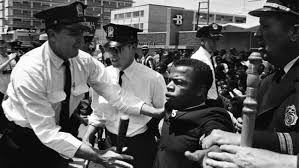 John Lewis: Religious Leader, Civil Rights Activist, American Icon We have experienced more in the last four months than we have in the last 20 years in the United States: an ongoing global pandemic, spotlighting of social injustices and racial inequities, health disparities and politicized everything and anything – all wrapped up in the package of a divided nation, unable to truly live up to its own ideal of being united. Kicking and screaming, we have been thrust into a reckoning which is forcing us to dismantle a dysfunctional system and construct a just society to save us from ourselves. One of the most recent bookends of this reckoning is the passing of Representative John Lewis on Friday, July 17, 2020. For America, his passing highlighted his perpetual, decades-long stance for racial justice. John Lewis was that rare breed of human who moves us to think in ways that serve all of humanity with equity and love. John Lewis’ every action was a clear statement of his morals, values, and Christian faith – each in lockstep with the other. He moved us to examine our moral lives, embrace humanity, love one another, think beyond ourselves, and do what is right by standing up for justice wherever it is absent. With every cell in his body, he believed that we each have a moral obligation to do so. Born in Alabama in 1940, John Lewis grew up at a time when Jim Crow laws legalized racial segregation and ministers were commonly leading members of the Black community. As a boy, John spent many of his days emulating those ministers by preaching to the chickens in the yard of his home in rural Alabama. Later, inspired by the oratory and leadership of the Rev. Martin Luther King, Jr. and then following in his footsteps, John went on to become a civil rights activist while attending American Baptist Theological Seminary in Tennessee. He demonstrated courageous leadership by calling out injustice amidst the silence of others and paying for his bravery with multiple beatings, threats, arrests, imprisonment, and his own blood, sweat and tears. From Alabama to the March on Washington, from the Student Nonviolent Coordinating Committee to the United States Congress, activism fueled by religion guided John Lewis’ life. He believed that civil rights activism and faith were intertwined. “The Civil Rights Movement was based on faith. Many of us who were participants in this movement saw our involvement as an extension of our faith. We saw ourselves doing the work of the Almighty. Segregation and racial discrimination were not in keeping with our faith, so we had to do something.” John Lewis sacrificed himself for the movement of racial justice and freedom, living an exemplary life, ordained by God. At All Saints’ Church, we admire, honor, and thank John Lewis for his service to this country, his sacrifice of self, and his love for all people. May we follow John Lewis’ example and answer his moral mandate of standing up for justice wherever it is absent. Joy De Lancy 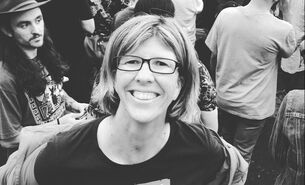 That we shall overcome some day Oh deep in my heart, I do believe We shall overcome some day We shall overcome We shall overcome This was first song my parents taught me to sing. No one would mistake my parents for activists. There was an underpinning of conservativeness to their outlook. But according to family lore, I was about three years old, and we were driving to visit my mother’s childhood friend. I performed it upon arrival! And while I won’t claim to recollect the memory exactly, a big song like that can take up a lot of space in the mind of a girl child. I continued to sing it long afterwards, because it always felt good to sing. I asked my mother decades later why she taught it to me, and she said she’d been struck by how powerful and clear the message was—and, it was easy to teach. (I think she may have wanted to demonstrate that even if she wasn’t an activist, she still had a mind of her own). Regardless of the initial intent, it made a considerable impression on me at an impressionable age. I chose to share this family story as an offering of hope. There is much work to be done in this country to surmount the centuries of injustice wrought by white hands. White supremacy was conceived in a fever dream, and that fever can and must be broken. Yet through music, literature, and art, the Holy Spirit has been and is still at work, weaving connective tissue, working on the imaginations of new generations, and bringing forth a new nation. We are not afraid We are not afraid We are not afraid today For deep in my heart, I do believe That we shall overcome some day Caroline Prugh 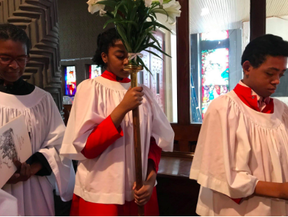 Following the murder of George Floyd, I witnessed the country change. I saw my peers mobilize in a way that they never had before and I was filled with a burning desire for justice. Police brutality is not a new concept in America, but there was something so unsettling and chilling about the way George Floyd was killed. In the past, police have often excused their actions, claiming that they acted out of self-defense and out of fear for their own lives, but watching the video of George Floyd pinned to the ground, struggling for air, and saying that he could not breathe for 8 minutes and 46 seconds sparked a rage inside of myself and others that could not go unaddressed. Black people have been fighting the same fight for centuries, and it seems as though whenever we take one step forward towards equality, we also take at least five steps back. George Floyd has now become a part of an ongoing list of too many black bodies that have been taken from this world far too soon. Out of fear for myself, for my parents, my nieces and my nephew, for my three older brothers, and for all black people living in America today, I knew that George Floyd’s death had to mean something. I knew that this time had to be different; this time needed to be the last time. I started going to protests whenever I could, which eventually meant going to protests every day. As I marched for hours with friends and family and gathered to listen to different speakers and policymakers among crowds of thousands, I was given just a little bit of hope. I once thought that being young meant that my voice would not be heard and that I couldn’t make real change, but standing alongside thousands of people who were also fighting against systemic racism with me brought me a newfound sense of power because I was fighting for something much larger than myself. As a young person, my generation can be the one to bring change. We are the ones who can vote the right people into office, speak out against injustices, and demand to see radical improvement throughout American society. No longer should police officers get away with murdering innocent black people. No longer will we let their excuses suffice. We will not stop until we see real change, and real change starts today. Saniah Arnold 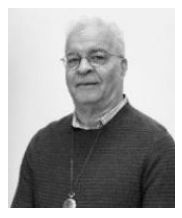 So let us not grow weary in doing what is right, for we will reap at harvest, if we do not give up. Galatians 6:9 And He is before all things and in all things, and in Him all things consist. Colossians 1:17 +++ This is a time when it seems everyone is feeling utterly downcast. Our hearts, our souls, even our bodies are carrying an awful weight. There is our American political rancor. There is our coronavirus. And there is our virus of racism. We are battered on all sides and, seemingly, we feel defenseless. Just the other day, I did some pastoral care for someone not of our parish or faith. She is someone who is wracked with fear. She is afraid to go out her front door. I took her to a local hospital for a consult. We were in today's typical ER— nurses doctors, orderlies, all in scrubs, and many patients lying on gurneys waiting to be seen. It was admittedly an ominous sight. While I was givings thanks for all the wonderful first responders, my friend was so frightened that she told me to “get her out of this place”. I was sad that she could not also see what I saw, but there was nothing for me to do but to comply with her wishes. Yes, the sight was hard to see, but in times like these we must try to see through the fog beyond the present and over the steep hill. That is why I use the above scriptures. They tell us that in God, we are freely bestowed with divine instruments of love and justice. Let us reacquaint ourselves with what they are. As regards the virus, we will do well to wear the mask. It will not disguise us; it will tell all that we care about this divine creation and everyone in it. We will keep to this social distance, not to be distant, but to say that we are very near to each other. Concerning our political rancor, we will search for leaders to lead us through it and go vote. I just did that. The right to vote is our national privilege and our sacred duty. And as regards our American struggle with racism—we are not without many great figures among us who are offering the important teachings, ones that can and will bend the arc of justice. We have been hearing from them from many pulpits, rostrums, editorials. One of those is notably Dean Kelly Brown Douglas, whose book “Stand Your Ground” we are reading right now as a parish. If you are like me and have not read everything needful, go on YouTube and search her name. Then let’s see each other at church soon. Faithfully, Howard Blunt+ 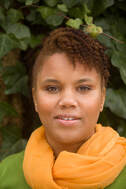 “Let us love not in word or speech, but in truth and action. And by this we will know that we are from the truth.” 1 John 3: 18-19 “You are the light of the world… Let your light shine…” Matthew 5: 14-16 I’ve now spent a quarter of a year in quarantine, and it’s not over. During this time I’ve witnessed the sights and sounds of illness and death, most notably the sirens which have now, finally, gone quiet. I lost two relatives and two friends and possibly others I haven’t yet heard about. The most recent loss was an old college friend who died last month, a few weeks after his birthday. He was, as far as I could see, a healthy man in his 40s. It was hard not to notice the disproportionately high fatality rate from COVID for black and indigenous folks. I was already grieving when I heard about the viral video of the woman in Central Park who essentially threatened the life and safety of an innocent black man by phoning in false charges against him to the police. In case you’re not aware there is no shortage of these videos on social media: people threatening to call the police on black people for doing things like sitting, walking, talking, and being in places where the caller has judged that they don’t belong. I was already grieving the killing of Ahmaud Arbery, the young man in Georgia who was shot like an animal as he went jogging in a “white” neighborhood. I was taken by his photo, his wide sweet smile, his face so open, so beautiful. I was already grieving when I heard about the murder of George Floyd by Minneapolis police. That week I had difficulty sleeping. Every time I closed my eyes, I imagined Floyd’s death by suffocation. For nine long minutes, though undoubtedly, he was dead before then. It’s not hard for me to imagine being Ahmaud, George or Christian, the Central Park birder. I’ve had my share of humiliating and potentially lethal run-ins with police while driving or going about my business. I’ve had police called on me for being somewhere some anonymous caller had judged I didn’t belong. I’ve had dogs sent after me or had a warning shot fired when I went jogging in towns where my skin made me conspicuous. Anti-blackness and white supremacy are baked into the history and culture of the United States, and it’s been that way for a while. This is my reality. In recent weeks, I was lucky to witness a series of Black Lives Matter marches. I briefly joined a couple of them. I was struck by the movement’s breadth: black, white, old, young. I saw a group, White Coats for Black Lives. I saw elders, I saw children. I saw motorists, bikers, pedestrians, all of whom enthusiastically supported the marchers. I felt some real hope in seeing this broad, diverse multiracial coalition coming together in support of black lives. Maybe this time of COVID and quarantine has helped us realize what is essential, what matters, and the truth of our interconnection. Without our usual distractions and constant pursuit of material trifles, maybe we’re realizing that what matters most, after-all, is our relationship with one other. If so, then as Christians, surely we can see this and say, this is the Good News. Camille Goodison |
Archives
August 2020
Categories |
 RSS Feed
RSS Feed